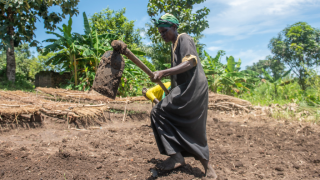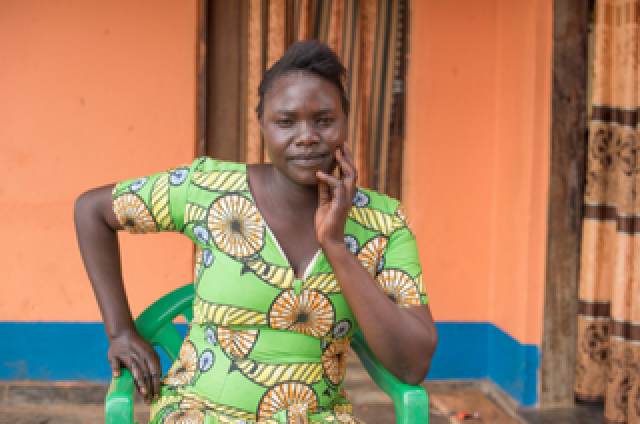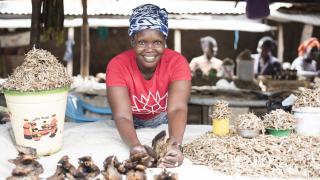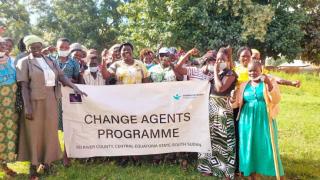By women, for women: climate change mitigation in South Sudan
Flood damage, droughts and famine were on the agenda of the 2022 United Nations Climate Change Conference, for which over 100 world leaders gathered in Sharm El-Sheikh, Egypt to discuss the global climate crisis.
During the 27th annual conference, African leaders urged “developed nations” to exercise accountability for the “loss and damage” caused by pollution to economically developing countries. This comes as Africa’s economy was reported to have declined between 5 and 15 per cent due to the impact of climate change on agriculture, tourism, energy and water.

As political figures and activists engaged in discourse, addressing the effects of climate change through political leadership, a small group of women in South Sudan assembled less than 1,000 miles away. Faced with a withering supply of crops and livestock, they’re pursuing an avenue of farming that will feed their families and eliminate an element of danger from their daily lives by planting trees.
Standing in muddy fields and armed with watering cans, the women are determined to conserve water for planting season, which is susceptible to the growing pattern of inconsistent rainfall, flooding and drought. They are participants of Women for Women International’s Stronger Women, Stronger Nations programme, which provides vocational training for agricultural practices, including tree farming and water conservation. Stronger Women, Stronger Nations Agriculture Skills Trainer, Bosko, explained,
The climate of our area has not been consistent, it has been changing.
Bosko also explained that Jonglei and the regions of the Upper Nile have experienced an increase in floods. According to the United Nations High Commissioner for Refugees, two-thirds of South Sudan is experiencing flooding, leading to displacement and food insecurity.
To alleviate the challenges created by extreme weather conditions, Bosko explained that the women are encouraged to plant fruit trees for a food supply or to be used to sell for income. They also plant species of trees that can be used for firewood, as displaced women who leave their camps to collect firewood are at high risk of being sexually assaulted by soldiers amid ongoing conflict in the country.
The Stronger Women, Stronger Nations programme in South Sudan is on the fourth month of integrating agronomy as a component of the programme’s curriculum. The training will not only equip women with the skills to sustain a healthy harvest but will also contribute to reducing Africa’s carbon footprint, though the continent is responsible for only 4 percent of greenhouse gas emissions globally.
“We’re looking at how to train these women,” Bosko said. “Because the productivity, the yields that they used to have, it is declining; it is not like it used to be.”
Through the Stronger Women, Stronger Nations programme, women’s existing knowledge about agriculture is expanded to provide them with the ability to achieve increased incomes and contribute to climate change mitigation.
“We help women realise their own power,” Bosko said. “The agriculture training that we offer...they are being provided by women, for women, for these participants.”
Read more
Women Pave the Path to Peace in South Sudan
subtitle: As South Sudan marks Peace Agreement Day this year, it stands on the brink of another deadly crisis. But women hold the key to a brighter future.
As South Sudan marks Peace Agreement Day this year, it stands on the brink of another deadly crisis – but women hold the key to a brighter future.
Food and Water as Life and Death: Why Redefining the Power of South Sudanese Women is Urgent
subtitle:
In South Sudan, finding food and water is a woman's work. But it isn't easy, and two-thirds of the population are currently facing starvation. Read about some of the challenges women face in South Sudan and what one Change Agent, Cecilia, is doing about it.
Regina
subtitle:
I will continue mobilising other women in the community in utilising the lessons I have learned, and I hope many more of them will be part of the training.




